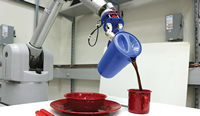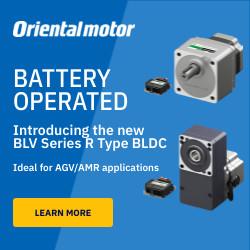A new standard in robotics
 Phys.org: On the wall of Aaron Dollar's office is a poster for R.U.R. (Rossum's Universal Robots), the 1920 Czech play that gave us the word "robot." The story ends with the nominal robots seizing control of the factory of their origin and then wiping out nearly all of humanity. Dollar, fortunately, has something more cheerful in mind for the future of human-robot relations.
Phys.org: On the wall of Aaron Dollar's office is a poster for R.U.R. (Rossum's Universal Robots), the 1920 Czech play that gave us the word "robot." The story ends with the nominal robots seizing control of the factory of their origin and then wiping out nearly all of humanity. Dollar, fortunately, has something more cheerful in mind for the future of human-robot relations.
He sees them as helpers in our daily lives—performing tasks like setting the table or assisting with the assembly of your new bookcase. But getting to the point where robots can work in the unstructured environment of our homes (as opposed to industrial settings) would take a major technological leap and a massive coordination of efforts from roboticists around the globe. The living room has been called the last frontier for robots—but first, the robotics community needs some standards that everyone can agree on.
Enter a suitcase-sized box containing 77 objects. It contains things like hammers, a cordless drill, a can of Spam and a nine-hole peg test. As ordinary as they may seem, these carefully curated household items could be the future of a new kind of standardization for robotics. Known as the Yale-CMU-Berkeley (YCB) Object and Model Set, the intent is to provide universal benchmarks for labs specializing in robotic manipulation and prosthetics around the world. Cont'd...
Featured Product

